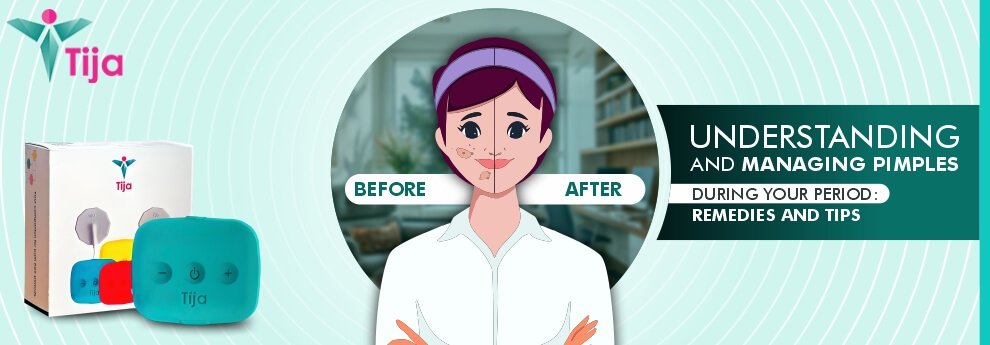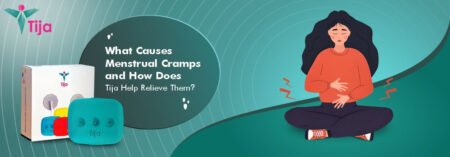Pimples, often referred to as menstrual acne, are a common occurrence for many women during their menstrual cycle. Hormonal fluctuations, particularly an increase in androgens like testosterone, can lead to excess oil production and clogged pores, resulting in breakouts. Let’s delve into a detailed guide on understanding the causes of pimples during your period and exploring effective remedies and tips for managing them:
Understanding the Causes:
1. Hormonal Changes:
Fluctuations in hormone levels, particularly estrogen and progesterone, can trigger an increase in sebum production. This excess oil can clog pores and lead to acne breakouts.
2. Menstrual Cycle Phases:
Pimples tend to occur in the days leading up to menstruation and during the first few days of the period. This is known as the luteal phase, when hormone levels are at their highest.
3. Stress:
Stress can exacerbate hormonal imbalances and contribute to acne flare-ups. Managing stress through relaxation techniques such as meditation, yoga, or deep breathing exercises can help reduce the severity of pimples.
Effective Remedies and Tips:
1. Maintain a Consistent Skincare Routine:
Establish a gentle skincare routine that includes cleansing, exfoliating, and moisturizing. Use products specifically formulated for acne-prone skin and avoid harsh ingredients that can irritate the skin.
2. Spot Treatment:
Apply over-the-counter acne treatments containing ingredients like benzoyl peroxide, salicylic acid, or tea tree oil to target individual pimples. These ingredients help unclog pores, reduce inflammation, and kill acne-causing bacteria.
3. Topical Retinoids:
Consider using topical retinoids, such as adapalene or tretinoin, to help regulate cell turnover and prevent clogged pores. These medications are available by prescription and can be effective in treating moderate to severe acne.
4. Healthy Diet:
Focus on a balanced diet rich in fruits, vegetables, whole grains, and lean proteins. Limit intake of processed foods, sugary snacks, and dairy products, as they may exacerbate acne. Stay hydrated by drinking plenty of water to flush out toxins and keep the skin hydrated.
Read also: Nourishing Indian Diet Plan for Period days
5. Avoid Touching or Picking:
Resist the urge to touch or pick at pimples, as this can worsen inflammation and increase the risk of scarring. Keep your hands away from your face and use clean hands or tools when applying skincare products.
6. Use Non-Comedogenic Products:
Choose makeup and skincare products labeled as non-comedogenic, meaning they are less likely to clog pores and contribute to acne. Opt for oil-free or water-based formulations to prevent further breakouts.
Read also: Understanding Phases of Menstrual Cycle
By understanding the causes of pimples during your period and implementing effective remedies and tips, you can effectively manage menstrual acne and maintain clear, healthy skin throughout your menstrual cycle. Remember to be patient and consistent with your skincare routine, and consult a dermatologist if you have persistent or severe acne that does not respond to over-the-counter treatment
Pimples often occur before menstruation due to hormonal fluctuations, particularly an increase in androgens like testosterone, which can lead to excess oil production and clogged pores.
Effective remedies include maintaining a consistent skincare routine, using spot treatments containing benzoyl peroxide or salicylic acid, incorporating topical retinoids, adopting a healthy diet, and avoiding touching or picking at pimples.
Yes, stress can exacerbate hormonal imbalances and contribute to acne flare-ups. Managing stress through relaxation techniques such as meditation, yoga, or deep breathing exercises can help reduce the severity of pimples.
Focus on a balanced diet rich in fruits, vegetables, whole grains, and lean proteins. Limit intake of processed foods, sugary snacks, and dairy products, as they may exacerbate acne. Stay hydrated by drinking plenty of water to flush out toxins and keep the skin hydrated.
Avoid touching or picking at pimples, as this can worsen inflammation and increase the risk of scarring. Use clean hands or tools when applying skincare products and choose non-comedogenic makeup and skincare formulations to prevent further breakouts.









